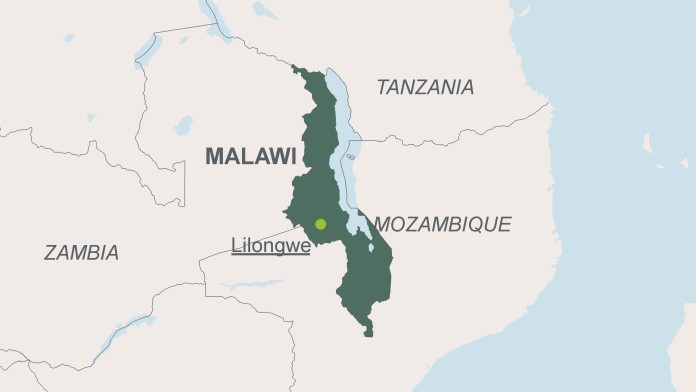
As of: 10/2022
Lots of good ideas, but no capital – a common problem for Malawi’s small and medium-sized enterprises. They only receive loans from the banks at very high interest rates. This is why many of these companies are not utilising their full potential. Jobs are urgently required to employ the many youths who enter the labour market every year. The rich natural resources allow many agricultural products to be harvested, but they are not sufficiently processed. KfW, on behalf of the German Federal Government, supports the Malawi Innovation Challenge Fund and the Growth Accelerator programmes launched by the United Nations Development Programme (UNDP) and provides private companies with capital for investments – which small and medium-sized enterprises in particular have previously found difficult to access
| Project title | More income and employment in rural areas thanks to infrastructure and financing |
|---|---|
| Commissioned by | German Federal Ministry for Economic Cooperation and Development (BMZ) |
| Country/Region | Malawi |
| Project partners | United Nations Development Programme (UNDP) |
The processing of agricultural products would offer many opportunities for Malawi, but the many small and medium-sized enterprises would have to receive capital for this purpose. However, the Malawian financial and banking system is not yet geared towards promoting these companies. Loans are only granted when particularly strict terms and very high interest rates are imposed. There is also a decline in the value of the local currency, the kwacha, and rising inflation. The growth and development of these companies, which may offer income to many people, is therefore severely slowed down.
Malawi, which is very densely populated compared to the region, mainly thrives on agriculture. Around 80% of the approximately 19.5 million inhabitants work the land. The products, such as corn, cassava, sweet potatoes and sorghum, are grown primarily for their own needs. If there are surpluses, these are difficult to sell, as most villages have poor connections to urban centres. Despite the diverse range of agricultural products and farms, value creation in the country is low. Many everyday essentials need to be imported.
High population growth means that the number of people needing to be fed is constantly on the rise. Jobs and employment must be created in order to provide people with income. Processing agricultural products would offer great potential in this regard.

This is precisely where the Malawi Innovation Challenge Fund (MICF) and the Growth Accelerator programmes come in. These funds, aimed specifically at small and medium-sized enterprises, establish a transparent financing mechanism that meets the needs of the Malawian private sector. The offer is aimed at businesses that create jobs and income and that find innovative, sustainable solutions to the problems facing the country, especially social and environmental challenges. These include the production of fuel from fast-growing bamboo, the building of environmentally friendly greenhouses from clay bricks, the processing of peanut butter, oilseeds, meat and dairy products or fish farming, as well as the establishment of an agricultural testing laboratory that tests soil samples, seeds and fertilisers in order to improve agricultural yields.
The financial instruments provide grants for these and other innovative and environmentally friendly business models. Private companies must apply for the promotional funds.
KfW has been supporting these two funds with a total of EUR 18 million to date on behalf of the German Federal Government. Of this amount, EUR 6 million is earmarked for funds to provide Malawi’s economy with targeted support in coping with the COVID-19 pandemic.
However, the pandemic has also helped to open up new business opportunities. For example, some companies have specialised in the manufacture of masks, protective clothing, disinfectants and cleaning agents, as well as the expansion of laboratory testing capacities, the development of online health services, private patient transport and delivery services, which was also supported by the UNDP programmes.
The new business models promise to generate long-term income and employment for the rural population. The processing of agricultural products integrates small businesses into value chains in the long term. Improved marketing opportunities encourage more food to be grown and harvested. This not only generates additional income, it improves the food situation for rural communities. Currently, the fund supports a total of 42 business models of private companies.
The aim is to
The project contributes to the achievement of these following United Nations Sustainable Development Goals: